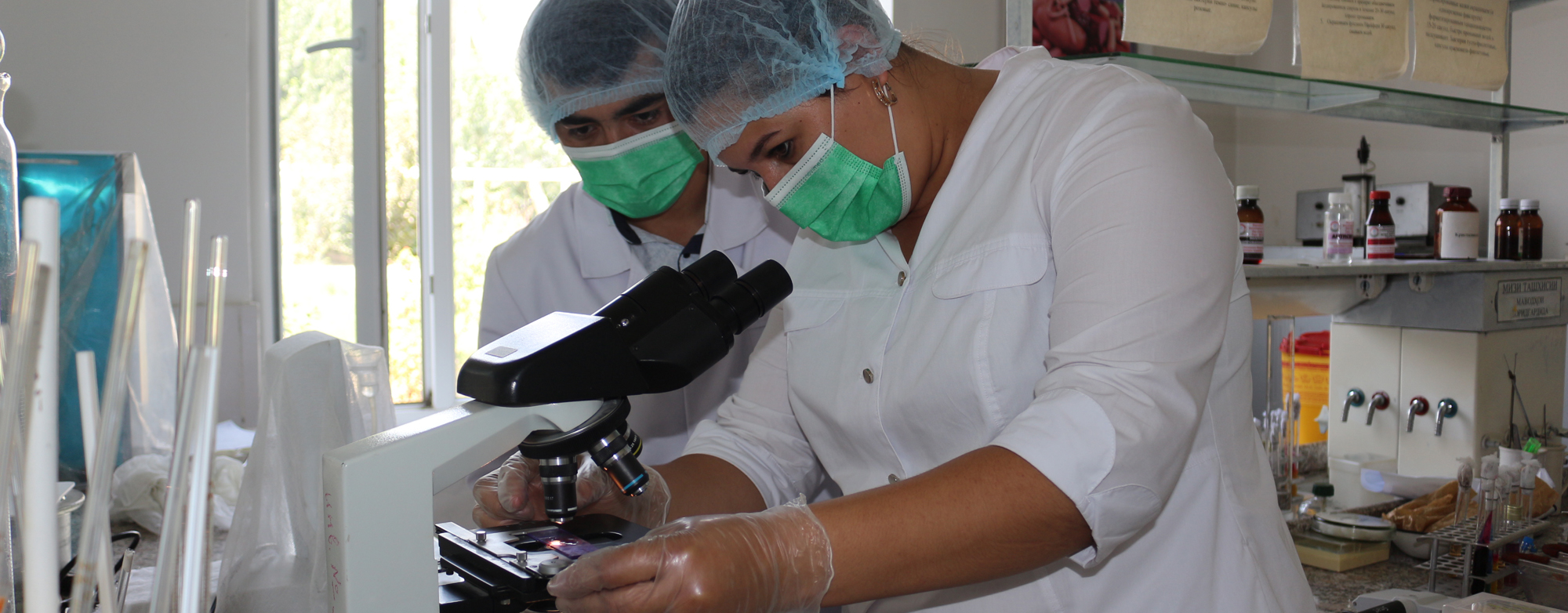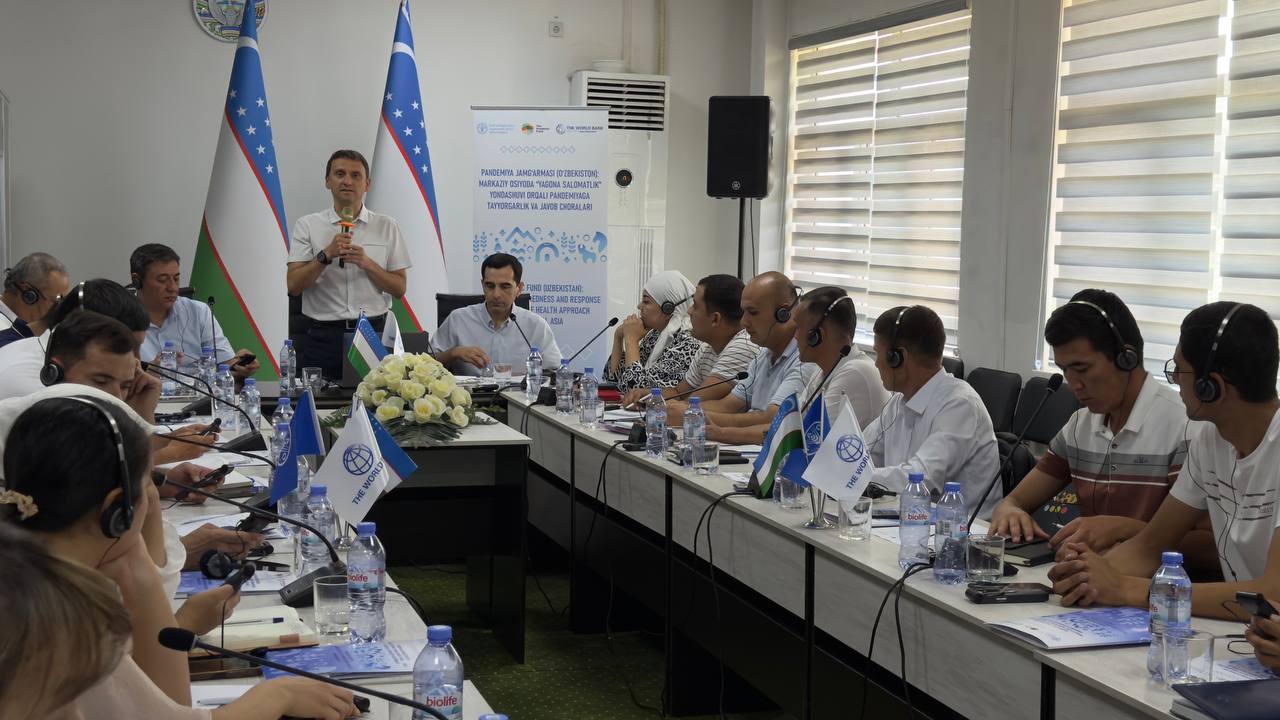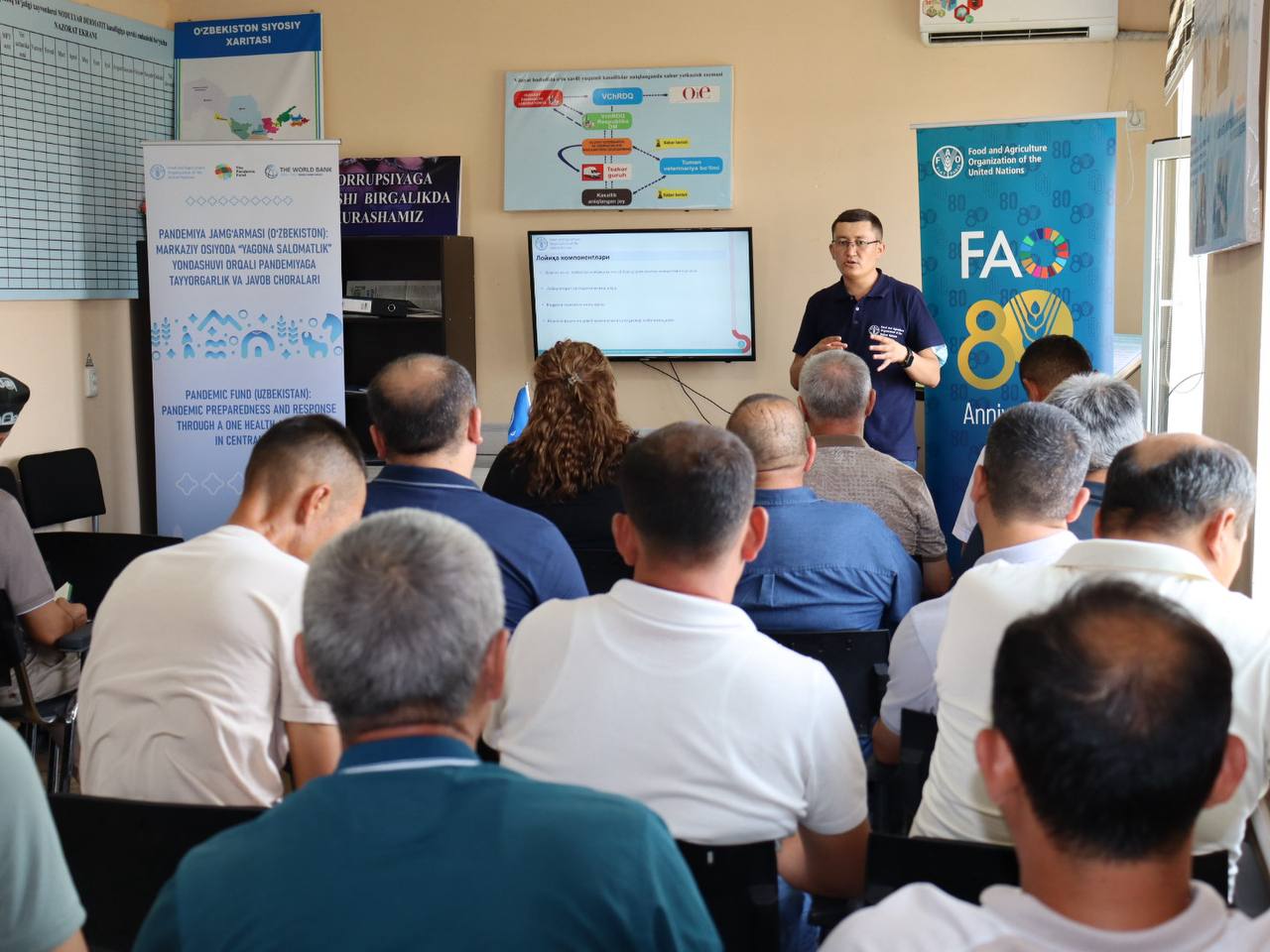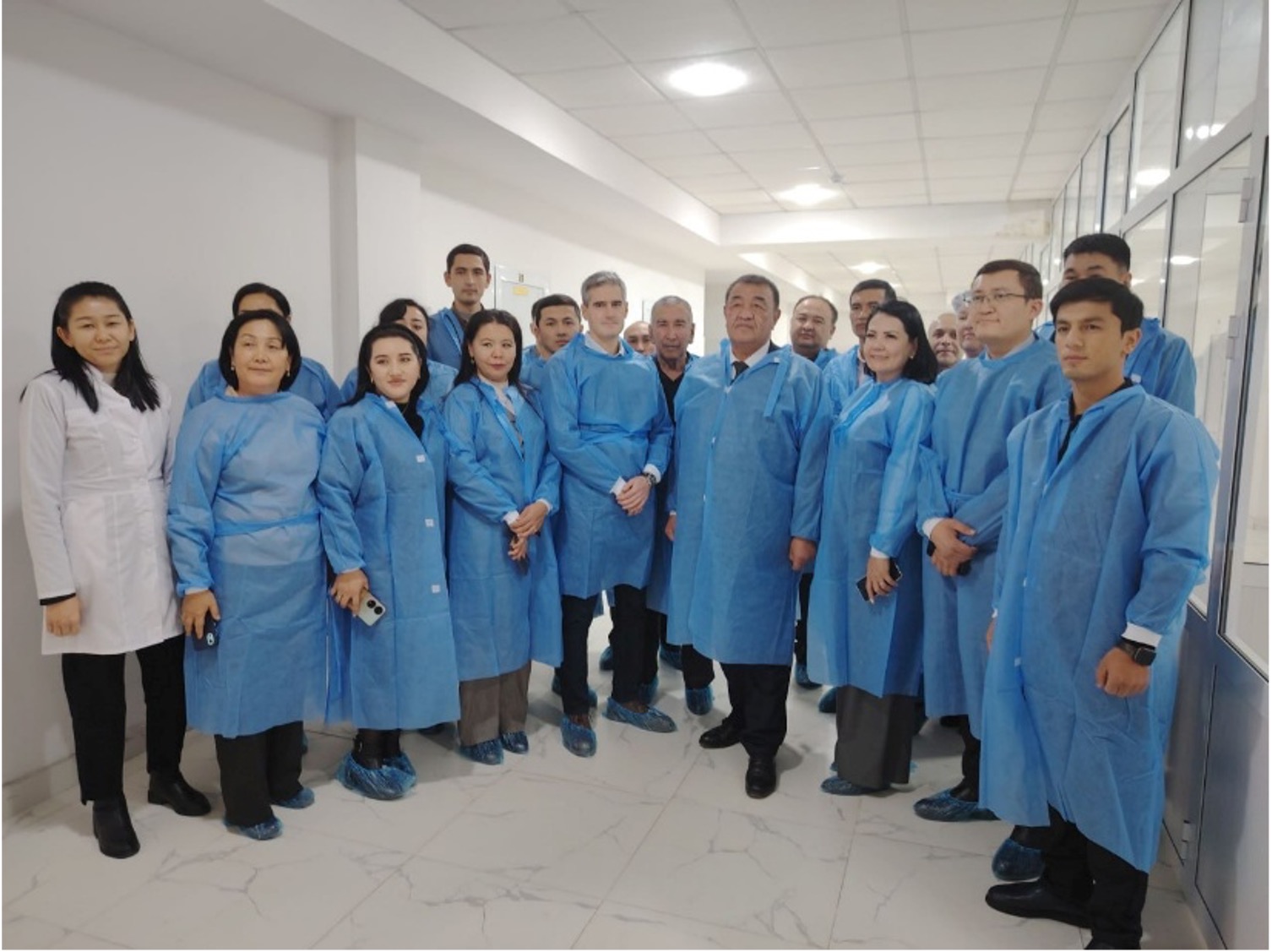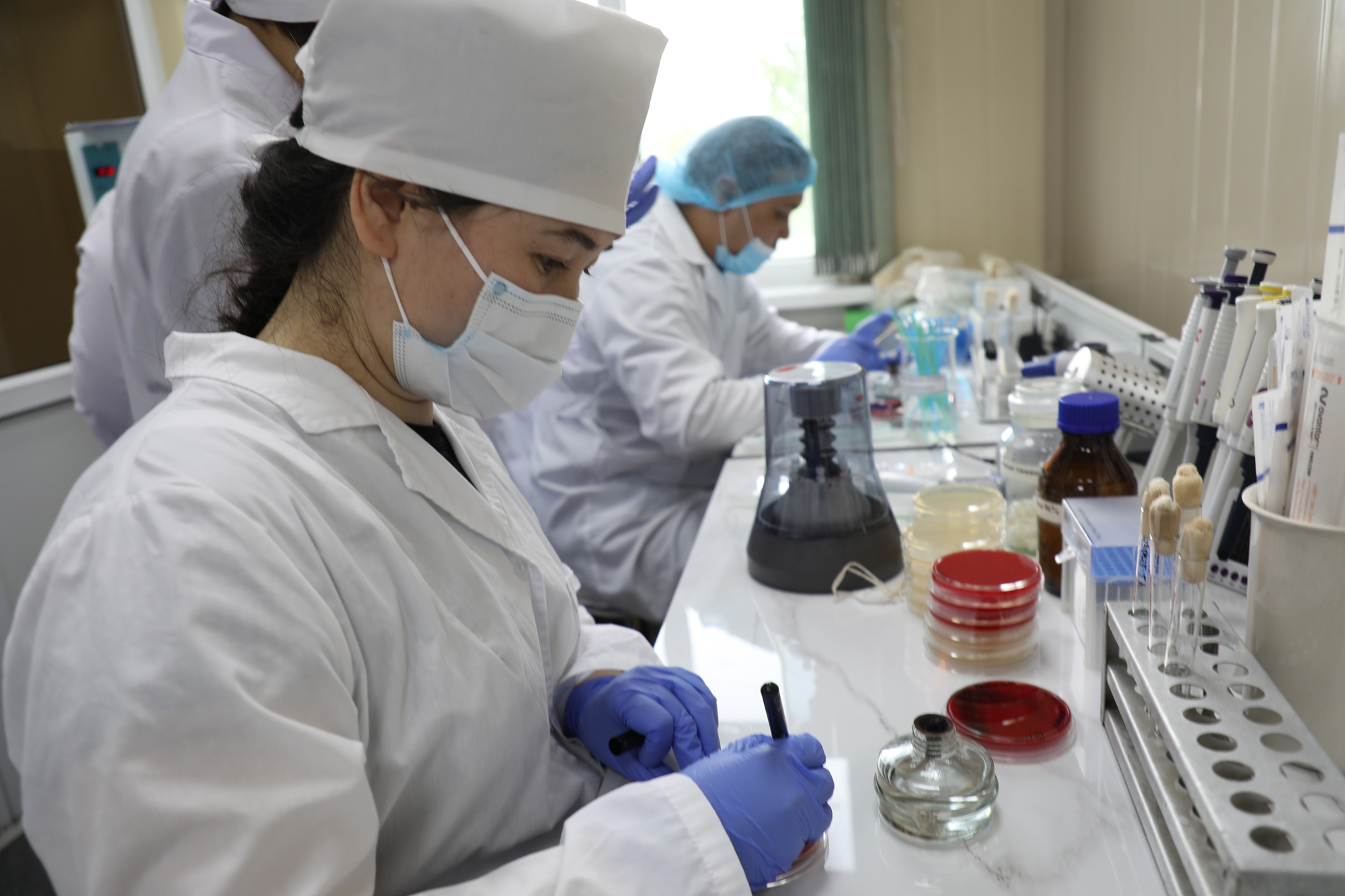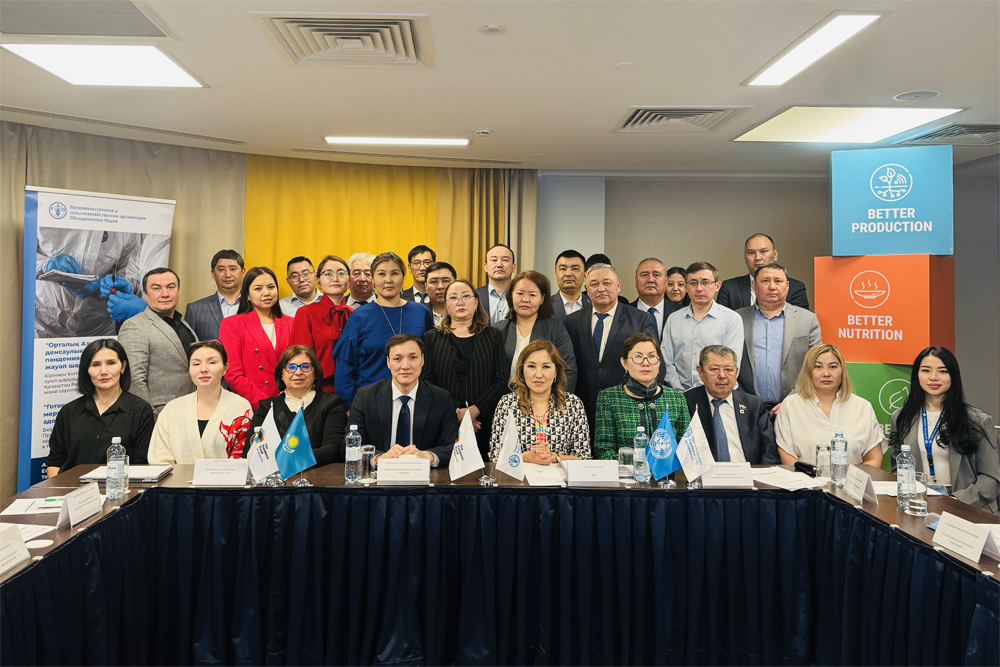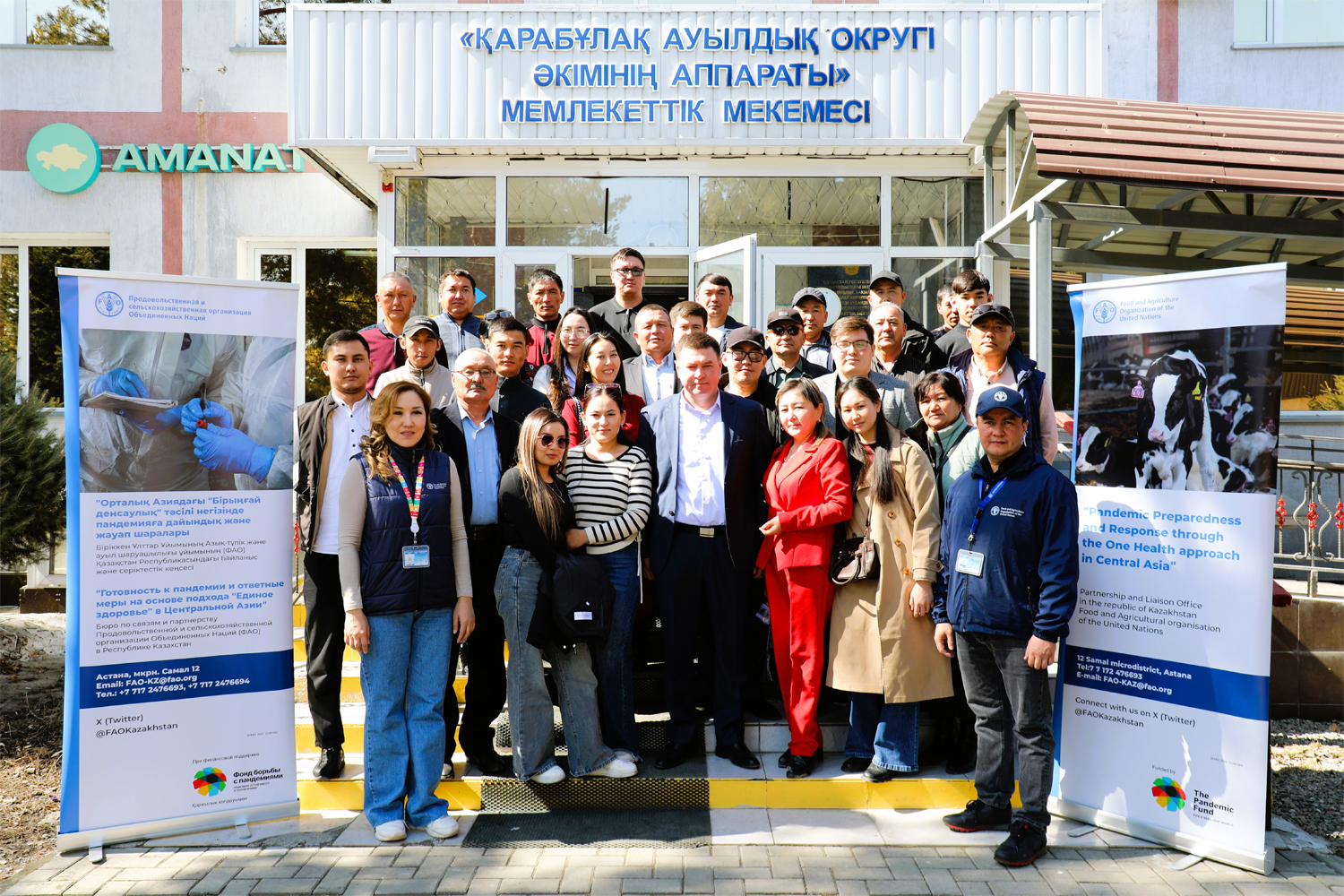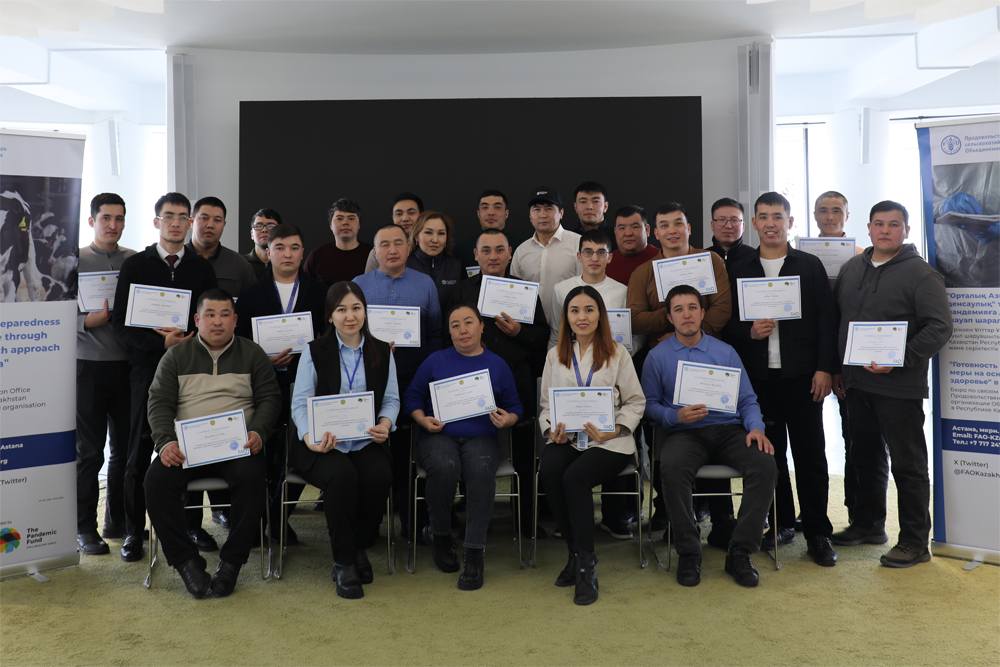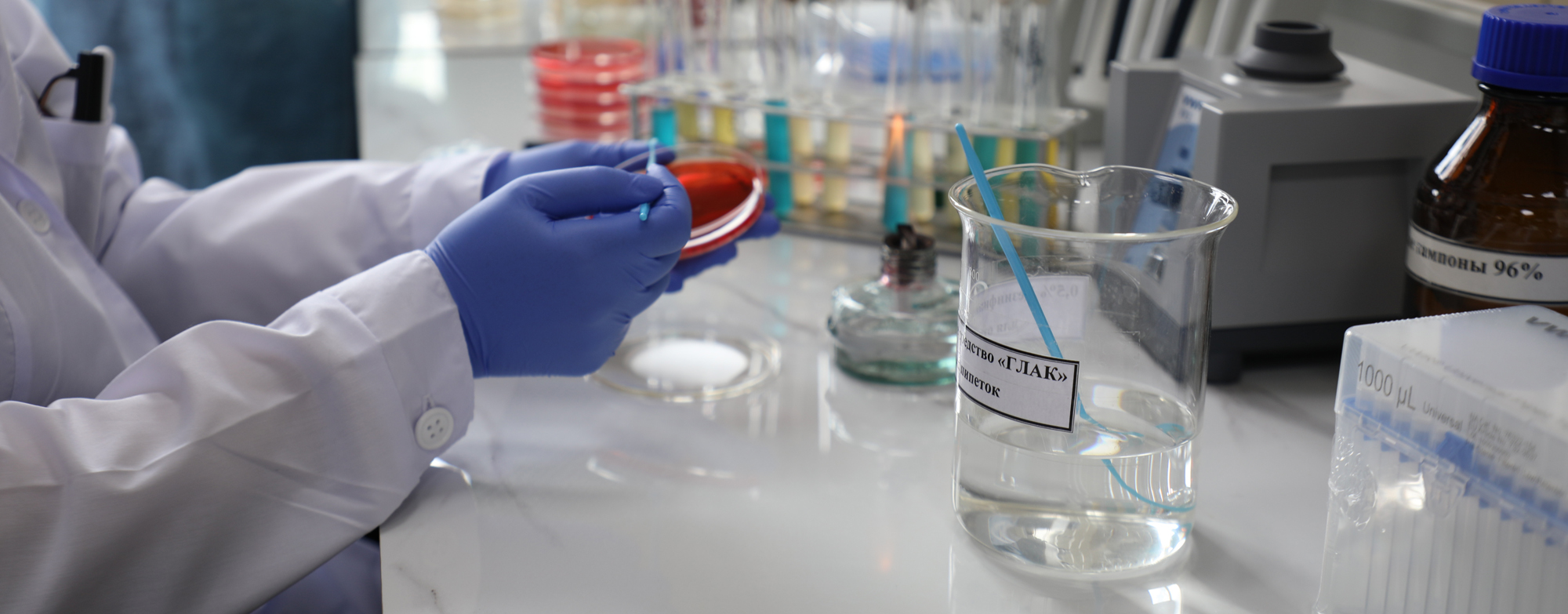
Pandemic preparedness and response through a One Health approach in Europe and Central Asia
Republic of Kazakhstan, Kyrgyz Republic, Republic of Tajikistan, Turkmenistan, Republic of Uzbekistan
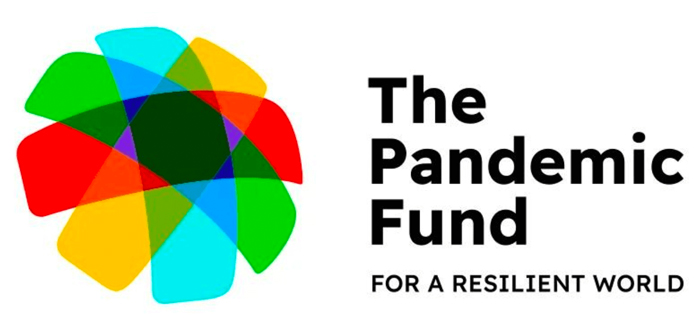
The project seeks to mitigate the risk of disease outbreaks and pandemics; enhance the resilience of regional food systems against shocks and climate change; and boost agricultural competitiveness, trade, and ecological sustainability in Central Asia.
Implementation and key components
Participating countries will individually oversee their project activities while collaborating on shared priorities to improve JEE and PVS scores. FAO and WHO will manage the first three components, and the World Bank will handle the fourth. A Project Implementation Supervision Support Group will monitor and evaluate progress.
Strengthening surveillance systems
This component aims to develop comprehensive national and regional One Health surveillance systems, including antimicrobial resistance (AMR) networks and zoonotic disease tracking. Regular simulation exercises and assessments will be conducted to bolster pandemic preparedness and response capabilities.
Supporting laboratory networks
The focus here is on establishing robust national and regional laboratory networks, updating laboratory standards, and ensuring quality control through external assessments. The project will also implement specimen transport systems and tiered diagnostic strategies tailored to each country's needs.
Building workforce capacity
This component supports the creation of a multisectoral workforce strategy, emphasizing specialized training for One Health professionals. It will enhance ongoing competency-based training in alignment with International Health Regulations (IHR), including education in risk communication, biosafety, and biosecurity.
Enhancing governance
The project will establish effective governance structures for coordinating One Health efforts at both national and regional levels. It will also focus on strategies for securing additional funding, with guidance from the Tripartite Alliance and the World Bank.
Expected outcomes
The project is expected to improve JEE/PVS ratings for critical gaps, enhance surveillance systems, laboratories, and workforce capacities, and strengthen national and regional coordination. These efforts aim to reduce the risk and impact of pandemics in Central Asia, both in health and socio-economic terms.
Implementing Entities
FAO, WHO, World Bank
Priority areas
- Surveillance systems
- Laboratory systems
- Human resources / workforce strengthening
Total budget
USD 27,160,421
Total co-financing
(in kind and cash)
USD 560,671,510
Total co-investment
(in kind and cash)
USD 30,288,948
Find out more
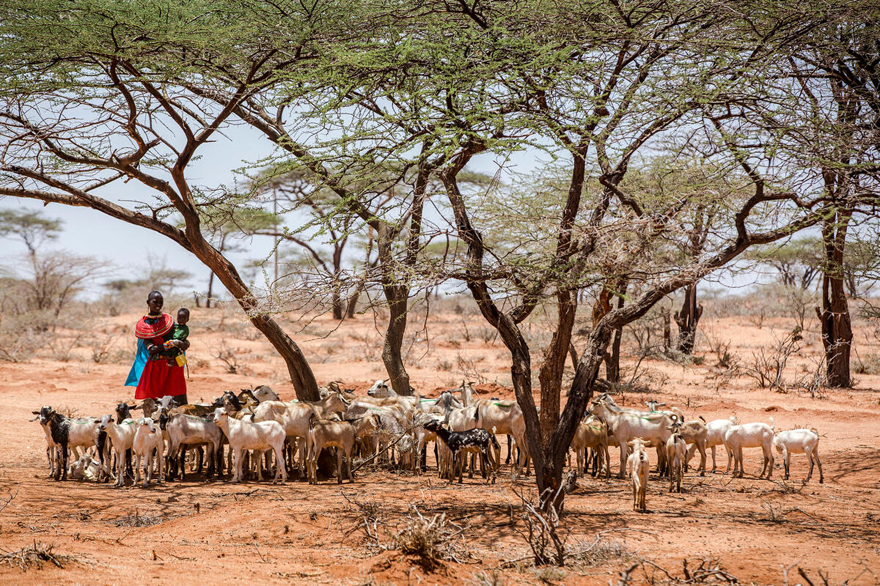
Projects
The Pandemic Fund
FAO is co-leading the implementation of 32 Pandemic Fund projects worth over USD 165 million aimed to boost local and global health security.

